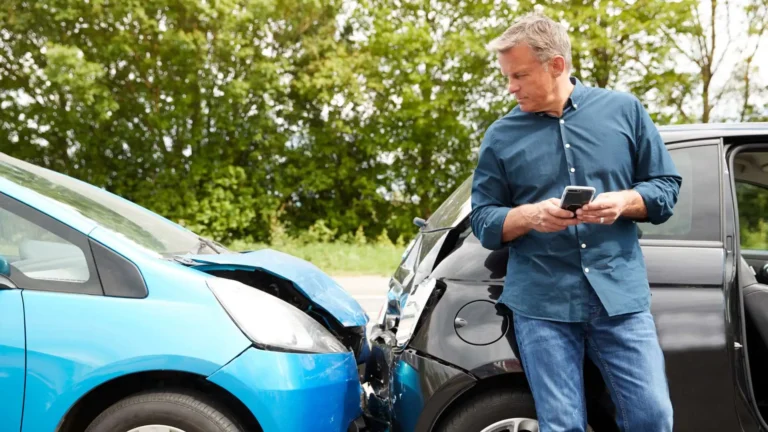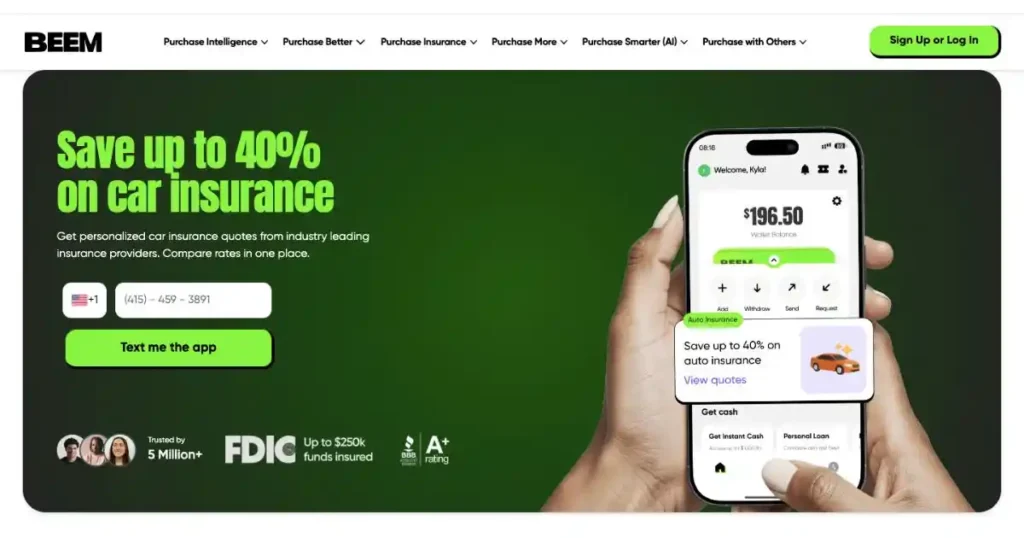Table of Contents
Introduction – Insurance for Drivers Without Cars
Car insurance tends to go hand in hand with car ownership, but things don’t work that way. Even if you don’t have a car, you might drive from time to time—borrowing someone else’s car, renting a car for a trip, or driving a car temporarily between the purchase of cars. In such situations, non-owner car insurance provides essential liability protection without requiring you to own a vehicle. You’re not free from liability risks in these circumstances.
That is where non-owner car insurance enters. It’s a specific type of coverage provided for drivers who don’t own cars but still drive them occasionally. Although it’s not as robust as a full policy, it offers basic liability protection and keeps your insurance record active.
For individuals who require it, non-owner car insurance can provide a budget-friendly alternative to expensive rental agency insurance, ensure ongoing coverage, or fill a legal need like SR-22 filings. Sites such as Beem make it easy to shop multiple non-owner policies from several insurers and find budget-friendly alternatives for your circumstances.
What Is Non-Owner Car Insurance?
Non-owner car insurance is a liability-only insurance policy for individuals who do not own a vehicle but still drive occasionally. It’s designed to protect against the financial consequences of causing injuries or property damage while operating a car you don’t own.
- Definition: Liability coverage for non-car owners.
- What it covers: Bodily injury and property damage to others.
- It excludes Damage to the vehicle you are driving and coverage for your own medical expenses (unless paired with other insurance).
For example, if you borrow a family member’s car and get into an accident, their insurance typically pays first. But if the damages exceed their limits, your non-owner policy can become secondary coverage. This ensures you’re not left exposed to lawsuits or high out-of-pocket costs.
Who Really Needs Non-Owner Car Insurance?
Not everyone without a car needs this type of coverage. It’s best suited for drivers who regularly find themselves behind the wheel but don’t own a vehicle. Here are the most common groups:
Frequent Car Renters
If you rent cars often—whether for business trips, vacations, or weekend travel—you’ve likely encountered expensive rental agency insurance options. Non-owner insurance provides a more affordable alternative, covering your liability while driving a rental. Pairing it with a credit card that offers rental damage protection can create a complete coverage package at a lower cost.
Borrowers of Friends’ or Family Cars
Driving someone else’s car always carries risk. While the owner’s insurance is usually primary, its limits may not be high enough to cover a serious accident. Non-owner insurance is a backup, ensuring liability protection without depending solely on the vehicle owner’s policy.
Drivers Between Cars
Selling your car before buying a new one creates a gap in ownership—but letting your insurance lapse can lead to higher premiums later. A non-owner policy keeps your insurance history intact, maintaining continuous coverage and preventing rate hikes when you purchase your next car.
SR-22/FR-44 Filings
Some states require SR-22 or FR-44 certificates for drivers convicted of serious offences such as DUI (Driving Under the Influence), reckless driving, or driving without insurance. Non-owner insurance is the most practical solution if you don’t own a car but still need to file proof of financial responsibility.
One of the biggest reasons drivers consider non-owner insurance is affordability. Because this type of policy doesn’t insure a specific vehicle and doesn’t include collision or comprehensive coverage, the premiums are significantly lower than traditional car insurance.
In the United States, non-owner car insurance costs between $200 and $700 per year on average. This makes it an attractive option for people who need continuous coverage, liability protection, or an SR-22 filing but don’t currently own a vehicle.
Factors That Affect Cost
Several personal and regional factors can influence how much you’ll pay for a non-owner policy:
- Driving Record – Your past behavior on the road has the biggest impact. A clean record may place you at the lower end of the range, while major violations such as DUIs, reckless driving, or repeated accidents can increase costs significantly. High-risk drivers often face premiums that are two to three times higher.
- Age and Gender – Younger drivers, especially those under 25, typically pay more because of statistically higher accident rates. Older, more experienced drivers often see lower rates.
- Location – Insurance premiums vary widely by state. You’ll likely pay more if you live in an area with higher accident frequencies, expensive medical care, or stricter liability minimums. For example, states like Michigan or Florida generally have higher average costs than states with lower coverage requirements.
- Liability Limits – Choosing only the state minimum liability coverage will keep costs lower, but it may not provide enough protection in the event of a serious accident. Opting for higher limits—such as $100,000 per person and $300,000 per accident—offers stronger protection but increases your premium.
Cost Comparison With Standard Policies
For perspective, a traditional liability-only policy for car owners often costs between $600 and $1,200 per year. Since non-owner policies exclude vehicle coverage, the savings can be substantial—sometimes cutting annual premiums in half.
For example:
- A driver with a clean record who pays around $800 annually for liability insurance on their own car might pay closer to $300 for non-owner coverage when they no longer own a vehicle.
- A high-risk driver required to file an SR-22 might still pay closer to $700 annually for a non-owner policy, but that’s typically less than the $1,500 or more they would spend insuring a personal vehicle.
Why the Lower Cost Matters
These savings make non-owner insurance appealing for people in transitional stages—like those between cars, frequent renters, or individuals regaining driving privileges after a suspension. Not only does it help keep costs manageable, but it also preserves insurance history, which plays a major role in lowering premiums once you buy a car again.
Pros and Cons of Non-Owner Car Insurance
Advantages
- Affordable option: Costs less than traditional policies.
- Protects against liability risks: Prevents financial hardship if you cause an accident in someone else’s car.
- Maintains continuous coverage: Avoids insurance gaps that lead to higher future premiums.
- Useful for SR-22 filings: Meets legal requirements for high-risk drivers without owning a car.
Disadvantages
- No vehicle coverage: Does not pay for repairs to the car you drive.
- Limited usefulness if you rarely drive: May not be worth the expense for occasional drivers.
- No collision or comprehensive coverage: You’ll need alternative protection for theft, vandalism, or natural disasters.
- May exclude business use: Driving for rideshare or delivery usually isn’t covered.
Alternatives to Non-Owner Insurance
Non-owner car insurance isn’t the only way to stay protected. Depending on your driving habits, these alternatives may be sufficient:
- Rental car company insurance: Convenient but often more expensive than non-owner policies.
- Credit card rental protection: Some credit cards include coverage for rental car damage, though liability is usually excluded.
- Pay-per-mile or usage-based insurance: Ideal for occasional drivers who own a car but use it sparingly.
Evaluating these options alongside non-owner coverage helps ensure you’re not overpaying for protection you don’t need.
How to Get the Best Non-Owner Policy
Choosing the right non-owner policy requires research since coverage and pricing vary by insurer and state. Here’s how to secure the best deal:
- Compare multiple insurers: Prices differ widely, especially for high-risk drivers.
- Confirm SR-22 availability: If required by your state, ensure the insurer can file on your behalf.
- Review state minimums: Liability requirements vary; consider higher limits for better protection.
- Check exclusions: Understand whether the policy covers rental cars, borrowed cars, or both.
Digital platforms like Beem streamline this process by displaying multiple quotes in one place, helping drivers identify affordable options that match their needs.
Conclusion – Insurance for the Car-Free Driver
Non-owner car insurance fills an important gap for drivers who still get behind the wheel but don’t own a car. Whether renting frequently, borrowing vehicles, transitioning between cars, or meeting SR-22 requirements, it ensures liability protection at a lower cost than traditional policies.
While the coverage is limited—it doesn’t protect the vehicle you drive or your personal injuries—it offers critical benefits like continuous insurance history and compliance with state laws. For many, it’s a practical and cost-effective way to stay protected without unnecessary expenses.
With tools like Beem’s quote comparison, drivers can quickly explore options and secure a policy matching their needs, budget, and driving habits. Download Beem now!
FAQs – Non-Owner Car Insurance Explained
Can I buy non-owner car insurance without a driver’s license?
Some insurers allow it if you have a suspended license and need an SR-22 filing. However, availability varies by state.
Does non-owner insurance cover rental cars?
Yes, it covers liability when driving a rental. However, it won’t cover damage to the rental car itself. Pairing it with rental coverage or credit card protection is recommended.
Is non-owner insurance cheaper than regular car insurance?
In most cases, yes. G premiums are lower since they only cover liability and not a specific vehicle.
Can I add non-owner coverage temporarily?
Policies are usually annual, but you can cancel once you buy a car and switch to a standard policy.
Does it cover me if I drive for work (like delivery or rideshare)?
Generally, no. Non-owner insurance excludes business use. Rideshare drivers typically need specialized commercial coverage.















































